Gout almost gone, duck for tea, Mary very tired but manageda little.
Obituary
HOME»NEWS»OBITUARIES
Jane Bown – obituary
Jane Bown was a celebrated portrait photographer for the Observer who brought her camera to shoots in a shopping bag

Jane Bown in 1983 Photo: Observer / TopFoto
7:42PM GMT 21 Dec 20141 Comment
Jane Bown, who has died aged 89, was an outstanding portrait photographer who confounded the experts with the simplicity of her camera technique. She spent 65 years on the Observer, for whom she took several thousand pictures of politicians, bishops, actors, pop stars and other celebrities, as well as ordinary people – miners, hop-pickers and women at a holiday camp – whose faces captured her interest.
Nearly all her pictures were snatched on location during the 10 or 15 minutes she was allowed while a reporter was interviewing someone for the newspaper. A tiny, round-faced, unobtrusive woman, she would appear with only a shopping bag, in which her camera would often compete for space with vegetables for that night’s supper.
This unthreatening demeanour had the effect of defusing a subject’s initial hostility. Both the Beatles and the Rolling Stones took to her and allowed her to stay long after the time allocated by their minders. This resulted in famous portraits of Mick Jagger and John Lennon in particular; she found Paul McCartney “a bit pompous”.
Her much-admired picture of Samuel Beckett, showing his face as a cracked desert of lines protruding from a white polo-neck, was captured at the stage door at the Royal Court after he had declined to see her. A very determined character beneath a gentle, nervous manner, she obtained a memorable portrait of Richard Nixon by crawling through the legs of the crowd outside his hotel and shouting to him to look at her.
She worked only in black and white. She was asked to try colour for the Observer when it launched a colour magazine in the 1960s, but she didn’t like it and soon abandoned the experiment. She also used natural light; the only “equipment” she ever allowed herself was a table lamp, which she occasionally carried around to illuminate a face when the light was especially bad. She never used flash or an exposure meter.
Related Articles

Phil Stern 18 Dec 2014
Cornel Lucas 14 Nov 2012
David Redfern 25 Oct 2014
René Burri 31 Oct 2014
At first she used a Rolleiflex, moving on to a Pentax and finally to her beloved Olympus camera with an 85mm lens, always at a camera speed of 1/60th of a second and with the aperture at f2.8. The combination of wide aperture on a close-up lens produced a very thin depth of field. She focused on the subject’s head, especially the eyes, and caught their faces in a way that isolated them sharply against a hazy background.
Lord Snowdon said she was “a kind of English Cartier-Bresson” who produced “photography at its best. She doesn’t rely on tricks or gimmicks, just simple, honest recording, but with a shrewd and intellectual eye.”
Jane Hope Bown was born on March 13 1925 in Dorset. Her mother was a private nurse, working at Eastnor in Herefordshire, who fell inconveniently pregnant from a patient in her care. Jane never knew the name of her father, but gathered that he was “posh … his family had land.”

Jane Bown, on right holding camera, with Bette Davis (Getty / Hulton Archive)
She was farmed out to her mother’s five sisters in Devon and Dorset (all named after plants: Primrose, Daisy, Violet, Iris and Ivy), who passed her around between them. When she was 18, she joined the Wrens and worked as a chart-corrector for naval operations, including the D-Day landings. After the war she was given an education grant and chose to study photography at Guildford College, even though she had never held a camera before.
She took wedding photographs for a time until her former tutor, Ifor Thomas, having spotted her natural talent, put her in touch with Mechthild Nawiasky, the artist, who was working on the picture desk at the Observer. Nawiasky showed David Astor, the editor, Jane’s college portfolio, and he was so impressed, especially by her picture of the eye of a cow, that he commissioned her to photograph Bertrand Russell, the first of her great Observer portraits.
In 1954 she married Martin Moss, a fighter pilot in the war who became a senior retail executive and is credited with turning Knightsbridge into a prime shopping location. They had a house in Alton, Hampshire, and later moved to Alresford, into a Queen Anne house that had once been occupied by Jane Austen’s brother.
Jane Bown spoke often about her subjects, in her usual staccato sentences, especially if they were boring (Robert Redford was one of those) but rarely about her art. She said once: “The best pictures are uninvited. They are suddenly there in front of you. But they are there one minute and gone the next.”

Portrait of Samuel Beckett by Jane Bown (SODA PICTURES)
Bjork said of her: “She can look at a person and she knows, instinctively, straightaway, who they are.” Jane liked Gordon Brown and showed him laughing, but never caught Tony Blair. Asked about this, she said: “Oh, he was difficult. I just couldn’t get him. I’m not sure there was anything there.”
Her former editor, Donald Trelford, once accompanied her to interview Sir Anthony Blunt. The picture did not appear in the paper then, but it surfaced some years later when he was exposed as a Soviet spy. It showed him as sinister, half in light and half in shadow. Asked if she had sensed something sinister about him at the time, she said: “It wasn’t me. It was the camera. It saw something creepy in his face.”
She was appointed MBE in 1985, and CBE in 1995. When the Queen asked her what she did, she said was “a hack”. Later, when she took the official photograph for the Queen’s 80th birthday, Jane herself was 81.

Portrait of the Queen by Jane Bown (SODA PICTURES)
Although she was clearly one of the great photographers of the age, she only became widely known to the general public after the Guardian group bought the Observer in 1993 and put her archive of pictures online and produced a documentary film about her. She had two exhibitions at the National Portrait Gallery and received an honorary doctorate from Southampton University.
She published 11 collections of her pictures: The Gentle Eye (1980), Women of Consequence (1986), Men of Consequence (1987), The Singular Cat (1988), Pillars of the Church (1991), Observer (1996), Faces: The Creative Process Behind Great Portraits (2000), Rock 1963-2003 (2003), Unknown Bown 1947-1967 (2007) and Exposures (2009).
Her husband died in 2007 and she is survived by two sons and a daughter.
Jane Bown, born March 13 1925, died December 21 2014
Guardian

Snapshot … Karen Babayan with her mother and grandmother at Christmas in Iran in the mid-1960s.
Snapshot: Waiting for Father Christmas in Iran
This is a rather formal picture for a very happy occasion – this was the Christmas party at the Tehran Club, a club for British expats based in a grand old house set in large grounds in central Tehran. My mother Yolande (Lolo) and my grandmother Clara are in their fashionable best, in home-sewn outfits created by my grandmother, who was an amazing seamstress.
Calikmama (my pet name for my grandmother) is in her very on-trend Jackie Kennedy two-piece and, at 52, is only a year older than I am now. In the photo, I am aged around three. Until my fifth birthday, I was stuck like glue to my mother’s skirts, and would not go to anyone, not even long-suffering Calikmama, who subsequently became my greatest ally and best friend.
My dad, Roy Sowerby, who was into amateur theatricals, was always Father Christmas at these parties. His entrance was spectacular. Totally in character, his “ho ho hos” and handbell rang out while he rode a donkey through the gardens to the house, the children crowding around the big picture window, trembling with anticipation.
Until I left Iran with my family at the age of 16, I had led a sheltered life among the Armenian and expat British communities. Despite being the product of a mixed marriage, one of the very first of the Iranian/Armenian community between an aspiring middle-class, educated Armenian girl and a working-class, ex-pro English footballer, I felt well settled and loved by the family I had been born into and relatively unaffected by world politics.
The Armenians, a Christian community, were well respected by their Muslim hosts, having been part of the fabric of the country for more than 400 years. It was something of a shock, therefore, to discover that our world was not as stable as we thought, with the coming of the Ayatollah Khomeini and subsequent Islamic revolution.
After having lived in the vibrant capital city of Tehran for 16 years, I found myself fleeing the impending political tumult and going westward, to England and an estate in the northern suburbs of Leeds, eventually becoming a painter. Our family is now scattered across the globe and this experience of displacement had a profound effect on every aspect of my life and informed every mark and output during my professional career as an artist.
Karen Babayan
The article by Aditya Chakrabortty on the goings on at Barnet council (Outsourced and unaccountable: this is the future of local government, 16 December) could have been written, to a greater or lesser extent, about any major council in England. Those of us struggling to make local government work when central government has reduced its funding so massively are familiar with the “Barnet graph of doom”, which in 2012 predicted that we would collectively be staring at a financial black hole of around £19bn by 2020 unless things changed. Up and down the country in city, town and county halls, “commissioning” is seen as the salvation to our problems. It has its place; but only if councils retain the ability to monitor its results and bodies like the Care Quality Commission, for example, have enough teeth to make sure that firms and organisations deliver according to agreements.
Clearly, we need major reform both of local government finance and structures before we even consider devolving any more powers from Westminster. We could start by adding some bands at the top end of the council tax and repatriating the business rate. How about looking at local income tax or allowing local councils to retain a couple of percent of the income tax residents already pay to the Treasury? Then let’s scrap those county and district councils that still exist in England and replace them with unitary authorities, thus reducing at a stroke the number of officers needed and particularly the number of councillors, many of whom, from my experience, often sit on both councils anyway.
There’s no easy answer to the problem. It may just boil down to those of us who can afford it being prepared to pay a little more for the services that we value. I wouldn’t bet on that happening in a hurry.
Cllr John Marriott
Lincolnshire county council
• Aside from a feeling that Aditya Chakrabortty seems stuck on a vision of local government that harps back to the 1970s, I have three main issues with his piece. One is his binary view of commissioning, in-house or outsourced. In truth, we have a varied mix of providers, some in-house, some charities, some private-sector and some joint ventures. All are united by a clear definition of the service outcome and a drive to secure value for taxpayers.
Second is his failure to understand that by commissioning services we create contracts based on the quality of service residents receive. Capita’s response to losing some calls was to commission extra phone lines. It now answers more calls than ever, with a higher satisfaction rating than the in-house service.
Thirdly, Chakrabortty seems dismissive of saving of £1m a month. Every penny we save on human resources is money we have for social care or child protection. I know which Barnet residents want us to prioritise. This may be why 53% of residents were satisfied with the council in 2010 and 75% are now.
Cllr Daniel Thomas
Deputy leader, London borough of Barnet
• Due mention should also be made of Barnet’s obsession with increasing its population, although only with the right sort of people that consolidate the political structure of the borough. But for transport, the result is unsustainable congestion from more and more cars. The borough’s cabinet has a “roads, roads, roads and roads” transport policy, to match those aspirations. And Barnet has now granted the UK’s most remarkable planning consent, at Brent Cross on the North Circular Road.
Barnet expects over 29,000 extra cars a day in the Brent Cross area, and the shopping centre expects wealthy new shoppers arriving overwhelmingly by car, even though the transport assessment claims it will increasingly be by bus. That fiction will be obvious only after the shopping centre has opened and the developer has moved on.
All is not lost though, because the borough has a shortlist of new developers, and the cabinet accepted a report that the winner will be announced at a property exhibition in the south of France next spring. Apparently, this is the way that local government now works, the modern way.
John Cox
London
• The government’s attitude towards the impact of its further round of cuts to local government, which by the end of 2016 will have amounted to £4 in every £10 previously spent, is not only dismissive but insulting to everyone who will feel the consequences. It is of course those most in need of public services who lose the most.
The attitude appears to be that if local authorities have managed to survive despite four years of eye-watering austerity, they can easily cope with yet more deep reductions in spending. This reminds me of a Ukrainian tale of a man who sold his mule with a guarantee that it would continue working without having to be fed for at least a week. The mule was duly bought, worked for a week without food – and then dropped dead. When the buyer complained, the mule’s original owner pointed out that the guarantee had run out. If the coalition’s measures are not a sign of their ideological objection to sustaining public services, I do not know what is.
David Blunkett MP
Labour, Sheffield Brightside
• The true cost of outsourcing local authority services? Supply teaching is an interesting example. This £500m-a-year business is run almost exclusively by private companies like Capita and Hays. One of the last council-run supply services is in Sefton, Merseyside. Last financial year, schools spent £1.6m on this service and less than £58,000 in administration costs – less than 3.6% of total costs. A private supply agency will cream off anything between 30% and 50% of the fee for supply teachers paid by schools.
Sefton Supply Service pays the full national rate for all its teachers and enrols them into the teachers’ pension scheme. Private providers pay teachers up to £60 per day less than the national rate and do not enrol teachers into TPS. So where exactly does schools’ money go? Last year the chief executive of Capita earned £2.2m and that of Hays was granted a pension contribution of £199,000. Another supply-teaching provider, Teaching Personnel, made £7.5m in profits on an income of £50m. A recent survey by one of the teaching unions found that 69% of its supply teachers had seriously considered leaving teaching in the last year.
Richard Knights
Liverpool
• Now that Barnet council has 300, rather than 3,000 employees, may we assume that Barnet council will have 90% fewer councillors?
Ben Ross
Burgess Hill, West Sussex
• Aditya Chakrabortty’s article on the problems experienced by people in Barnet are minor compared with the problems that can be anticipated in the future. By outsourcing its procurement and legal departments, Barnet has, in effect, lost control. It appears to have no means of independently managing and monitoring its existing contracts. More importantly, how will it negotiate new contracts when the current ones expire. There will be no in-house expertise and costs will inevitably rise.
Alan Innes
Shoreham-by-Sea, West Sussex
• Until actual power is restored to local authorities to make decisions about their own futures, it will be difficult to attract strong political leaders with the necessary vision, creativity and energy to drive our cities forward. Being a cypher of Whitehall, acting to the diktat of Eric Pickles, is not an attractive career option. The bland prescriptions of Sir Bob Kerslake, expressed in modern civic-management speak, fail entirely to take account of the excessive centralisation and resource starvation that have crippled our cities over the past generation. It is a nonsense that a city of a million souls should have less control of its destiny than a French village. Birmingham can become great again, but first Whitehall must remove the shackles.
Roy Boffy
Walsall
• I suppose I should have known better, but I fully expected Saturday`s Guardian to include news of an angry reaction from Labour leaders to the announcement by the local government minister, Kris Hopkins, that the “latest round of multibillion-pound cuts” to local authorities’ funding was a “fair financial settlement” (Council leaders say breaking point is near, 19 December). What can possibly be “fair” about a settlement that sees over 90% of the councils facing cuts in their spending of up to 6.4% being under Labour control, whilst the ones receiving increases are over 90% in Tory hands? The situation is worsened, of course, by the fact that the figures are more likely to be nearer the 8.8% average, as suggested by the group representing local government heads, making a total of 40% cuts since the coalition took office.
Admittedly, Hilary Benn did accuse the government of cutting funding for “socially deprived cities in the north” disproportionately, but that barely merits the term “opposition”. Why can’t the Labour leadership realise that it is, above all else, unfairness that annoys and antagonises the British people, and that these cuts are just another example of the government’s discrimination. There can’t even be many Tories who honestly believe that rich areas like Wokingham should be getting a better deal than impoverished urban areas further north, but still Labour’s reaction is muted. Such stifled reaction goes some way to explain why Labour’s lead in the polls, after almost five years of unjust and prejudiced government, is only by a slender margin, rather than the double digit one it should be. Why aren’t Ed Miliband and company at least as angry as they were over a misguided tweet recently, or perhaps even more so? This is about people’s quality of life deteriorating, about inequality increasing, and children’s futures being jeopardised. Let’s see some anger and passion.
Bernie Evans
Liverpool
• Congratulations on your editorial (20 December) which, unusually for national media, digs deeper to explain just how iniquitous and absurd the system of council funding has become. Please carry on. Rarely does media coverage of council services seem to get much beyond Jeremy Paxman’s “councils are the people who empty your bins”. But in my experience canvassing on the doorstep, dull and perverse as it may seem to national journalists, many ordinary voters rate council services above national government services as the ones that matter more in their day to day lives.
Tim Bell
Nottingham
• The way the council tax has been run does indeed reveal a wider rot in the governance of Britain from which no political party can be exonerated. It seems to have been beyond the comprehension of law-makers that £72.40 a week jobseeker’s allowance is too low to tax. Much spin is devoted to raising the threshold for the payment of income tax while the robotic council computers are churning out summonses to the magistrates court adding up to £125 costs to inevitable council tax arrears making it even more difficult to collect; then the bailiffs are sent in. Tens of thousands of these Christmas cards will have been sent out last week ready for when the courts open on 5 January.
Supreme court judges commented on Haringey council’s 2012 consultation of benefit claimants about how they would like to be hit with the council tax in April 2013. “Their income was already at a basic level and the effect of Haringey’s proposed scheme would be to reduce it even below that level and thus in all likelihood to cause real hardship, while sparing its more prosperous residents from making any contribution to the shortfall in government funding.” Sooner rather than later the more prosperous residents, like MPs and councillors, must also wake up to the fact that taxing £72.40 is grotesquely unfair.
Rev Paul Nicolson
Taxpayers Against Poverty
• Eric Pickles’ decision to send in commissioners to run key functions in Tower Hamlets is a welcome move (Eric Pickles sends emergency takeover squad to Tower Hamlets, 18 December). What is needed in Tower Hamlets is honest and open government – something which has been in short supply in the borough in recent times, culminating in the shambles of May’s mayoral election, with allegations of electoral fraud and mismanagement.
There are those who seek to present government intervention in Tower Hamlets as an attack on local democracy. They are wrong.
For those of us who believe that the result of the mayoral election should be re-run, the intervention is the beginning of attempts to restore faith in local democracy and council decision-making.
In February next year an election court will decide whether the current mayor and the council’s returning officer have a case to answer over misconduct in May’s mayoral contest.
The future of democracy in our borough and across London is at stake. We are pleased that Eric Pickles recognises that what has gone on in Tower Hamlets is unacceptable and that intervention is the only cure.
Andy Erlam
Tower Hamlets Election Petition
It is wonderful how the establishment works. The truth of Mandy Rice-Davies’s allegations concerning Viscount Astor is questioned by her obituary writer Peter Stanford (20 December) – but without mentioning the fact that he was the ghostwriter for Astor’s widow, Bronwen Pugh. The Guardian reviewer of the book wrote that Stanford was “embarrassing” in his identification with Pugh and showed “partisan snobbery” in his attack on people like Rice-Davies. I always found Mandy to be truthful when tested against the files and testimony from other participants in the scandal.
Stephen Dorril
University of Huddersfield
• Geoffrey Robertson (Report, 20 December) says that the reason for the full documents relating to the trial of Stephen Ward not being released until 2046 is that the date would be 100 years after the birth of the youngest witness. Surely a more likely reason is that by that time anyone who might challenge the official version of events, who remembers or cares about the case or who might seek to arraign those who were responsible for the miscarriage of justice in the case of Stephen Ward, will be dead and so the case will quietly die with almost no publicity when the documents are released?
George Taylor
Kendal, Cumbria
• Without wishing to heap contumely on the memory of John Profumo, who followed his departure from politics with community work in the East End, I recall a ditty which was doing the rounds at the time: “What on earth have you done?” said Christine/“You have ruined the party machine./To lie in the nude/Is not at all rude,/But to lie in the House is obscene.”
Bob Watson
York
Your story (Mexico authorities knew about attack on students as it happened, 16 December) does not reflect the reality of the disappearance of 43 students in the Mexican state of Guerrero and the ongoing investigations around this event. Without any other source of information than a story published in a Mexican magazine – on which the attorney general’s office has already requested an appropriate rectification – the Guardian admits that it has not been able to verify not only the alleged leaked government documents but the magazine’s account.
The Mexican government is committed to a thorough transparent investigation, with the findings double-checked and assessed by different NGOs, independent groups and experts.
Diego Gomez Pickering
Ambassador of Mexico to the UK
It was heartbreaking to see the photographs of Kabul, where “life continues amid the violence” (The other Kabul, G2, 16 December). Life continues openly for men and boys, that is: the only woman or girl visible was shrouded, totally hidden by a burka, after all the years of our involvement there.
Liz Cope
Dorking, Surrey
• A couple of years ago I was having trouble putting my ferry ticket into the machine at Circular Quay in Sydney. As the queue built up behind me, a member of staff came to assist. An inspector shouted: “What’s the matter, Fred?” His reply was: “Senior.” “Oh,” said the inspector, no other explanation being necessary (Letters, 20 December).
Victoria Turner
Truro, Cornwall
• Chelsea are not the only football club to announce they are to pay the living wage to staff (Report, 12 December). Luton Town in League Two and on much less income than Chelsea have also agreed to do this. More, they have guaranteed admission prices will not rise as a result.
John Loosley
Weston-Super-Mare, Somerset
• Thank you for celebrating Sheffield’s local carol tradition (Report, 15 December). My husband’s seasonal playlist consists solely of traditional versions of While Shepherds Watched from Sheffield and further afield; it lasts for a very long car journey, and is aptly known as “Begin and never cease”.
Helen Albans
Sheffield
• Your front page story, Man learns to use camera (19 December), was almost as compelling as the one about Couple have baby. Twice.
Bob Hughes
Willoughby, Warwickshire
Independent
Your report “Two nations” (20 December) contrasts the gross indulgence of many Christmas shoppers on “Panic Saturday” with the fact that millions of Britons will be facing Christmas in poverty.
On a recent pre-Christmas visit to one of London’s top stores, we were astonished to see a child’s toy car on sale for £30,000, (of course it was gold-plated). What sort of person can spend that sort of money on a child’s toy when there is so much need in the world?
Mike Stroud
Swansea
Christmas this year comes in the wake of the launch by the Archbishop of Canterbury of the report about the scandal of hunger and food poverty in Britain, while trillions of pounds drift tax-free into overseas accounts.
The birth of a healthy boy to a healthy mother is to be celebrated. The mother was expected by a tyrannical regime to walk the 80 miles in the last weeks of her pregnancy from Nazareth to be registered in Bethlehem. Nazareth is located between the Mediterranean and the freshwater Sea of Galilee. Plenty of affordable oily fish, jaffa oranges, green vegetables, sheep and goats to provide excellent nutrition before conception and during her pregnancy.
Many mothers in Britain today cannot afford a healthy diet at the same time as utilities, council tax and transport on £57.35 a week (aged 18 to 25) and £72.40 a week (aged 25 or over). Since 1979 successive governments have allowed the value of adult unemployment benefits to crash, leading to poor maternal nutrition and a greater risk of low birth weight and poor mental and physical health for the lifetime of their babies. Three days’ food from a food bank will not cover a nine-month pregnancy.
Rev Paul Nicolson
Taxpayers Against Poverty
London N17
Your front-page “Two nations” report repeated the claim that 13 million Britons now live in “poverty”.
In Britain, you are said to be in “poverty” if you are on 60 per cent of the median income. As the median UK household income is currently about £23,000, you are in “poverty” if you’re on less than £14,000 a year. And all sorts of absurdities follow from this definition.
What would happen to “poverty” if we could somehow double every income or if all the world’s billionaires were to suddenly relocate to Britain? How could such “poverty” ever be eradicated? Must every income be identical? This ludicrous definition appeals to people who think serious problems will disappear if we just take huge sums of money from one group and hand them to another.
Keith Gilmour
Glasgow
At last, a sensible US policy on Cuba
During the Cuban missile crisis, in 1962, I and 15,000 other Americans were 25 miles off the Cuban coast in very large landing ships loaded with big guns and tanks and amazing air power waiting to invade the island. As in any army that trains for years to do just that, we were all eager to do our job. Thankfully, it did not happen.
Since that time, we have allowed 20-plus electoral votes in south Florida to prevent a peace process. Cuban expatriates have kept our policy in limbo until now.
President Obama in his last two years is accomplishing good things for America. After more than 50 years of having the wrong policy, our President has established diplomatic relations with a country 90 miles away that poses no threat to us and hasn’t for decades.
I can’t wait to see Cuba without landing on a beach as a target. Good work, Mr President.
Norm Stewart
Aventura, Florida, USA
Listening to Putin accuse the West of trying to “defang the Russian bear” (19 December), one couldn’t help but think that any man prepared to employ that metaphor in the year 2014 does indeed require muzzling.
As the economy crashes around his ears and Russia heads toward deep recession, the solution to his problems do not lie in grandiose conspiracy theories or fomenting mass paranoia. The cheap tactic of counter-blame will fail him as surely as it failed Castro, and sooner. He goes on to accuse the west of plotting to seize large tracts of Siberia’s natural resources. How is such a thing even geographically possible? Does Putin imagine it would be done by stealth?
Cuba has shown the good sense to consign the past to history and make the present a priority. How much more pining for the Soviet dark ages will it take before this guy figures out that it all ended in 1988?
Mike Galvin
Tewkesbury, Gloucestershire
Any relaxation in America’s aggressive and bullying stance against Cuba is welcome. However if Barack Obama wishes his initiative to be taken seriously then he must quit the US’s occupation of Guantanamo Bay, which is sovereign Cuban territory.
Roger Earp
Bexhill, East Sussex
Oxygen of publicity for Nigel Farage
Recent letters have expressed concern that The Independent has given Ukip rather more exposure than its poll ratings warrant, publishing Nigel Farage’s weekly column while not giving the same exposure to the Green Party, which enjoys a similar poll rating. Today’s Independent (13 December) seems to bear out this concern with coverage of Ukip-related items spreading over two pages.
The thing that makes The Independent such an attractive quality newspaper is it’s non-partisan approach to politics, as reflected in its name. I realise that Ukip represents a greater threat to the political status quo than the Green Party in the forthcoming general election, but by giving them so much exposure you risk compromising your reputation for impartiality.
Patrick Cleary
Honiton, Devon
In response to John Blenkinsopp’s comments (letter, 17 December) I, too, was more than surprised that The Independent gave space to a party which makes me, for the first time in my life, seriously afraid for the political future of the UK.
My solution has been never to have read the column. But it coincides very much with my thoughts related to the National Front in France. One way to deal with them is to give them enough rope, which should ensure that they hang themselves with it.
Terence Hollingworth
Blagnac, France
I was dumbfounded to see Channel 4 giving half an hour’s puff to Nigel Farage (“Steph and Dom meet Nigel Farage”). Shall we now see David Cameron on The X Factor or Ed Miliband on Strictly? Politics as entertainment?
Betty Rider
Lewes, East Sussex
Senior moment of catastrophe
Your article of 15 December on the most popular nomenclature for the growing population of over-85s fills me with dismay. In a few months I shall have the questionable honour of joining this cohort, and would feel like an object of ridicule if referred to as a “real senior”, as if not to be confused with an unreal one.
In the sincere hope of averting the catastrophe of this abomination’s acquiring currency, I suggest the following alternatives: golden oldies; super wrinklies; late developers or honourable lifers.
Ben Marshall
London N11
Those who reach the age of 85 should be known as “super seniors”.
Peter Fryer
Loughborough
Horror movie for children
Jeremy Redman (Letters, 19 December) thinks those of us who saw Bambi as small children but yet have matured into happy adults were not traumatised by this film. I most certainly was. I was extremely distressed, so much so that I have been careful never to see it again. And, now aged 70, I still would not.
It was truly terrible and I feel upset merely thinking about it.
Sara Neill
Tunbridge Wells, Kent
Who pays for the City watchdog?
Julia Holley (letters, 15 December) is not only spot on about struggling public servants getting no freebies, but the Financial Conduct Authority, which Janet Street-Porter (13 December) chose as her illustrative example, are not even public servants.
They are a very affluent body funded by fee-paying members of the finance industry and they are outside the public sector pay freeze or indeed any HM Treasury pay remit authority.
Neil March
London SE13
Brand at the barricades
I found Joseph Kynaston Reeves’s letter petty, individualistic and selfish (“Russell Brand and an RBS banker: whose side are you on?”, 18 December). It sums up the insular, self-centred, conservative mentality that makes this world the cesspit it is. I stand with Russell Brand. He wants change for the better. He’s on the right side of the barricades.
Sasha Simic
London N16
Times
If community budgets allowed cities and towns to manage the entire process of the welfare state we would have local knowledge managing families and individuals
Sir, Philip Collins (“Welfare in Britain isn’t fair, as Ukip knows,” Dec 19 ) misses the fundamentals of the welfare state.
Fundamental to Beveridge’s report was a partnership between the state and the individual. That partnership has over the years been completely eroded and now it is virtually non-existent.
New Zealand, Malta and the UK are the most centrally governed countries in the OECD. More than 30 government departments control 20 local authority departments on a one-size-fits-all basis. This results in a chaotic management of services, benefits and resultant costs with Whitehall management remote from the real issues of welfare. Government, local government and the third sector aren’t co-ordinated and compete with each other for control and funds.
If community budgets allowed cities and towns to manage the entire process of the welfare state we would have local knowledge managing families and individuals, as exemplified by Louise Casey’s troubled family unit which does so well with one person managing a family rather than 20 — as dictated by Whitehall. The benefits would be substantial.
The idea that the state knows everything has been proved to be incorrect, inefficient and highly wasteful yet ministers insist on hanging on to power.
SIR STUART LIPTON, London W1
Sir, We now have a welfare system that is understood by practically no one. Also, the present arrangement encourages idleness — an evil that Beveridge wanted to eliminate.
The whole system needs to be replaced with something that is more even-handed and easily understood. How about starting afresh with an untaxed flat rate citizens wage payable to all together with scrapping all the tax breaks on income.
This would also have the advantages of eliminating the very high rates of marginal tax for those on low incomes, and be simple to administer.
RICHARD GILL, Bourton-on-the-Water, Gloucs
Sir, Philip Collins correctly suggests that increasing contribution-based benefit would cost the state more — at a time when the size of the welfare bill is already under question. It would also further complicate a complex system which results in over- and under-payments, claimants’ stress and fraud. Benefits staff contradict each other regarding eligibility and awards.
As a Citizen Advice Bureau volunteer, I have had clients unfairly (in my view) refused contributions-based benefit because of anomalies in the complex rules, eg, because they hadn’t paid NI contributions last year (despite having paid them for 20 years before that); or had several part-time jobs (despite their adding up to 40 hours a week); or because they didn’t know to switch credited contributions from wife to house-husband; or had rogue employers who pocketed their contributions.
Eliminating contributions-based benefits (rolling NI into income tax) would have huge administrative savings.
JOHN WIDGER, Altrincham, Gtr Manchester
Sir, Philip Collins is right: the British system is out of step with our deeply felt instincts about fairness. A fair system must establish more rights by contributing more.
If you have contributed in the past, of course you should get a higher pension, or a more generous benefit than someone who hasn’t.
Fairness demands that if you have not contributed, you should receive a less valuable benefit than someone who has, and it should be tied to a condition that you enrol in some full-time, work-relevant activity so you are not enjoying more free time than they do. Those with strong contributions records should be exempted from such conditions.
PROFESSOR PETER SAUNDERS (Professorial Fellow, Civitas), Hastings, E Sussex
Sir, I have been wrestling with the problems caused by modern architects for years, and particularly the impossibility of finding one’s way around (or even into) modern office buildings (letter, Dec 20). Now at least I understand why these problems have arisen — the architects are copying the ideas of Mad King George.
Anthony Jennings
London WC1
A few days ago I sat by the bedside of a wounded sapper — a reservist — and heard the story of life in a signal-box on a branch line in the North of England. The man was dying. I think he knew it. But the zest of his everyday life was still strong in him. He told me that there were three trains each way in the day, and that on winter nights the last train was frequently very late. This meant a late supper, but his wife saw to it that everything was kept hot. Sometimes his wife came to the box to meet him if it was a dry night.
In the next bed there was a young Scotsman. He was a roadman, and we talked of his roads and the changes which had been wrought in them of late years by motor traffic. He recalled a great storm, during which the sea wall around a certain harbour was washed away and the highway rendered impassable. Then, rather diffidently, he confessed that he had lost a foot — “at Ypres” — and would be handicapped in his work.
At the far end of the ward there was a German who spoke a little English. His wife and children, he said, would miss him at Christmas. We spoke a long time on the subject of Christmas. I suppose by all the orthodox canons that this German should have told me that he was glad to be a prisoner, or else that the German Army would speedily carry everything before it to victory. But somehow he forgot to say these things and I forgot to ask him about them. They seemed far away in the quiet ward, even — and for this I beg forgiveness — grotesque and uninteresting.
By the touchstone of the men it has broken this war is judged, and the makers of this war. And more than ruined villages and desecrated churches these soldiers pronounce condemnation. They, who have given so much, are, in a sense, without joy or enthusiasm; rather they shun recollection. There is no zest in the killing of men. Their thoughts, especially at this season, are directed away from the dull, mechanic force which labours against its bonds across Europe, and dwell in the homes it has threatened. The war is revealed as a thing gross and dull-witted, a crime even against the ancient, chivalrous spirit of war.
Sir, I was amazed that your correspondent had found such difficulty buying a coffee in Havana (letter, Dec 20). My caffeine-addicted husband and I had no problems last month. However, as one can get an excellent, inexpensive mojito to sip, while watching the sun disappear beneath the Havana skyline, my question would be, “Who needs coffee?”
Havana certainly does not need Starbucks and McDonald’s.
Florence Mills
Leighton Buzzard, Beds
Telegraph
668 Comments
SIR – The 350 member churches, schools and communities of Citizens UK wish to praise The Sunday Telegraph’s Justice for the Elderly campaign.
How can we live in a society where our frail parents and grandparents are cared for by people with such little training and time, working for less than it costs to live?
People among our membership with dementia are facing the distress of a different care worker coming in every week, whom they are unable to get to know and trust, and the indignity of someone rushing in and out to help them eat and clean themselves.
Meanwhile, dedicated and kind care workers are not even being paid the minimum wage, since their travel time between visits is not properly remunerated.
Our campaign #icareaboutcare joins your paper in calling on care providers and commissioners to improve standards of pay, training and continuity. Politicians from all parties must make sure social care has the funding it needs to meet these basic standards.
Related Articles

Letters: The NHS needs a long-term plan to end crowding which compromises care 20 Dec 2014
Rev Paul Regan
Chair of Trustees, Citizens UK
London E1
SIR – You are right to say that “a civilised country has to care better for its elderly”. This requires properly trained and licensed care workers who know that they are valued.
Employers who fail to pay the minimum wage to their care workers must be identified and prosecuted.
Christopher Broome
Sheffield, West Yorkshire
SIR – As a coalition of over 75 charities campaigning for improved social care, we welcome your Justice for the Elderly initiative which seeks to ensure older and disabled people are treated with dignity and respect within the care sector.
We believe that the most important issue to be addressed is chronic underfunding, which has seen dramatic rationing of social care support for older and disabled people and their carers, excluding thousands from the support they desperately need.
This also has a knock-on effect as the health service is forced to pick up the pieces when people become isolated, can’t live on their own and slip into crisis.
More and more of us need care, but fewer of us are getting it. The Government needs to fund care, as well as the health system, properly. As health experts argue, anything else is a false economy.
Richard Hawkes
Chair, Care and Support Alliance
London N7
SIR – My father is 89 years old, registered blind and living in a charity-run residential home. I have been running a complaint against the home for two years about the standard and quantity of food, and general poor care, to little avail.
I would add “proper and adequate nutrition” to your campaign’s objectives, because food is of the utmost importance for health and wellbeing. It is too easy for homes to offer poor quality food in order to save money.
M D Edwards
Llandough, Glamorgan
SIR – Full marks to the Care Quality Commission (CQC) for shutting down the Merok Park nursing home.
The regulator lists 10 excellent reasons for the closure, but no mention is made of whether or not staff were kind and compassionate to the residents. This is because the CQC currently has no means of assessing this factor. On a visit to a home you can see the state of cleanliness, you can look at staffing rotas and training records, but you cannot be sure that staff are treating the residents well.
The CQC needs to encourage homes (and residents’ friends and relatives) to use cameras and sound recording devices to check up on staff. It should also place covert workers in suspect homes, as Panorama did with devastating effect at the Old Deanery care home in Braintree.
David Hogarth
London NW8
A tradition of military figures in schools
SIR – The headmaster of Box Hill School does not know his Hahn history.
Kurt Hahn shared with Goethe a high regard for military virtues. Gordonstoun School, which Hahn founded, always had former members of the Armed Forces on the staff in his time. After the war he ensured that at least four headmasters of his Salem school in Germany were retired officers rather than professional schoolmasters.
The founding head of his Atlantic College in Wales was a Rear Admiral who, at Hahn’s insistence, took early retirement in order to launch Britain’s first international sixth form college.
The Duke of Edinburgh Award was itself entrusted to that not unknown military personality, Sir John Hunt, in 1956.
David Sutcliffe
Lindfield, West Sussex
SIR – Brian Farmer writes that Ofsted has failed to deliver improvements to standards in schools. Ofsted was set up to inspect and report, not actively to improve.
Prior to Ofsted’s conception, schools were inspected rigorously by Her Majesty’s Inspectors of Schools, who were highly-qualified professionals. They would identify where a school’s weaknesses lay and then offer advice on how to improve. They also led their own courses for school staff to attend.
Ofsted offers no such advice and provides no such courses, so ineffective head teachers are left to their own devices.
Michael Sands
Frimley, Surrey
Brains over brawn

Andy Goode, the Wasps fly-half in action (Getty Images)
SIR – As a professional rugby player, it was brave of Andy Goode to speak out against modern coaches who train for brawn rather than traditional rugby skills. He is absolutely right.
Goode demonstrates every week how an amply framed fly-half with a proper feel for the game can glide through the smallest of gaps.
Coaches should take note, ease off on the gym work and start teaching their young players how to position themselves to give and take a pass at high speed.
Ken Cookes
Bath, Somerset
Regulating terror suspect interrogation
SIR – I was astounded to learn that British soldiers, under new guidelines, have been told not to yell at terrorist suspects.
I was regularly bawled at by drill instructors some years ago at the start of a two-year stint in the Armed Forces. A grim-faced drill instructor would stand nose-to-nose in front of each recruit on the parade ground and yell like thunder into each face. If you flinched during these tirades a drill instructor’s wrath knew no bounds.
Will instructors have to comply with these new regulations too? If so, trained combatants will struggle to cope when they come face-to-face with the enemy.
Ron Kirby
Dorchester, Dorset
SIR – Torture is abhorrent, but in gaining intelligence against a twisted ideology the West must not tie its hands completely. America and the CIA have nothing to feel guilty about.
B J Colby
Portishead, Somerset
SIR – If the West is to maintain the moral high ground in the war on terror it should remember that two wrongs do not make a right.
James Thacker
Tanworth-in-Arden, Warwickshire
Cost of going green
SIR – The costs of the Government’s energy and climate change policies are more than offset by the policies that provide energy efficiency savings. The report into energy costs that we published in November gave a complete picture of everything that affects final energy bills. Looking at the price of electricity alone doesn’t do this.
Our policies are keeping bills lower, keeping the lights on and cutting emissions.
Ed Davey MP (Lib Dem)
Energy and Climate Change Secretary
Safer London
SIR – Christopher Booker questions the value of Transport for London’s (TfL) investment in new digital speed cameras as a means of reducing deaths and serious injuries in the capital.
An average of three pedestrians a day are killed or seriously injured on London’s roads. Speed cameras are an important tool for reducing traffic speeds, which in turn makes our streets safer and benefits the environment, local economies and public health.
Investment by TfL to realise this ambition should be welcomed.
Tom Platt
Policy Manager, Living Streets
London E1
Illegal immigrants
SIR – You report the sad story of the death of an illegal immigrant who was crushed after clinging beneath a truck axle. He was only one of many who seek to smuggle themselves into the Britain in this way.
Would it really be that difficult to arrange for trucks boarding ferries bound for Britain to drive over an upward-facing television camera, positioned in a pit, in order to detect these illegal stowaways?
Dr Anselm Kuhn
Stevenage, Hertfordshire
Out on the street
SIR – As a country resident living far from London, I am interested to learn that the new Metropolitan Police Headquarters is considered too small.
Presumably those that arrive early for work will gain access, while those who turn up late will have to pound their beats. I feel sure that the public will be delighted to see them on the streets and may even be encouraged to call for further reduction in the size of their accommodation.
Lord Kenyon
Whitchurch, Shropshire
The decade pop music lost its small screen sparkle

Kylie Minogue performs ‘Santa Baby’ on Top of the Pops in 2000 (Alamy)
SIR – The low ratings for the inaugural BBC Music Awards programme earlier this month came as no surprise.
Music on TV has been in decline since the weekly Top of the Pops show was abandoned. There has never been a decent music show on television in America – even MTV, which was a brilliant idea when it started out, sadly failed to develop.
The BBC Music Awards show was actually excellent and, very importantly, the music that has been released this year has been terrific, too. Now is the time for someone with a bit of creative imagination to put together a great music on TV format for the modern day.
We need another Ronan O’Rahilly (who created the pirate radio station Radio Caroline in the Sixties) or Vicki Wickham (producer of the popular Sixties music television show Ready Steady Go!).
Jonathan King
Wyndham Yard
A worthy winner
SIR – The bad grace with which some people have greeted the Sports Personality of the Year result is astonishing.
The golfer Rory Mcllroy has achieved great feats. So has the winner, racing driver Lewis Hamilton, and his speech earlier in the night portrayed a personality replete with humility and patriotism.
I would have preferred to see third-placed Jo Pavey win following her unprecedented gold medal at 40 years of age, but to yield to calls by sportsmen and commentators to abandon the public vote would be a mistake. This is not European politics.
Tim Coles
Carlton, Bedfordshire
Heebie-jeebies
SIR – It is interesting that today’s youngsters are frightened by the “nasty lady” in the Paddington film.
Over 60 years ago I was scared out of my wits by the Wicked Witch of the West riding her bicycle across the sky when my mother took me to see The Wizard of Oz. My reaction has been recounted many times, with much jocularity, within the family over the years.
Gerald Fisher
Kettering, Northamptonshire
Dutch courage
SIR — Your report about the Utrecht man who toppled his crane while trying to reach his girlfriend’s window to propose made me wonder what it is about that part of the world that encourages these antics.
Back in the summer of 1972, my girlfriend and I were guests of Radio Hilversum in the Netherlands and had been put in separate lodgings by the rather strait-laced management.
Late one night I dropped quietly down from my window, sidled around the courtyard, and clambered up to my girlfriend’s balcony to propose, for the seventh time of asking. I suppose she was mildly impressed, as she replied: “Well, if it will shut you up, yes.”
We are still happily married.
Alex Abercrombie
Pembroke
Told you so
SIR – Dan Dare knew there was life on other planets over 50 years ago, but the only people who believed him were us schoolboys who bought the Eagle comic.
Jim Queally
Cork, Munster, Ireland
Irish Times
Sir, – Derek Byrne writes “There are some, mainly in the drinks industry, who claim education about alcohol abuse simply doesn’t work” (“Demon drink – the greatest public health issue of our age”, Opinion & Analysis, December 15th). This is simply not true. In fact the opposite is the case.
The drinks industry has been advocating education on the harmful effects of alcohol misuse for years. We have been the sole funders of the only significant programme designed to educate people on the dangers of alcohol misuse – drinkaware.ie. We have highlighted time and again the evidence that shows that the principal influencers on youth drinking are parents and peers and when the alcohol strategy was published over a year ago, we stated that “the omission of education measures that could positively impact a culture of alcohol misuse from this Bill [was] a glaring omission”.
The industry wants to work with the Government, policymakers, and other stakeholders to identify and implement effective measures which reduce alcohol misuse, which is causing significant damage to the reputation of an industry which supports 92,000 jobs throughout the country.
Earlier this year the various bodies representing pubs, restaurants, hotels and independent off-licences, as well as drinks suppliers, which I represent, collectively pledged to work with Government on the implementation of meaningful policy measures to combat alcohol misuse by addressing the sale of cheap alcohol, introducing a statutory ban on price-based advertising and introducing statutory codes to regulate the merchandising of alcohol.
When considering the problems with alcohol, it is important that we acknowledge the fact that alcohol consumption in this country has fallen by over 19 per cent since 2001, and our consumption levels are fast approaching European norms. The recent Department of Children and Youth Affairs State of the Nation’s Children report shows that the number of young people stating that they have never had an alcoholic drink has increased by 35 per cent in the past eight years. A Unicef report on 29 countries, published earlier this year, found the percentage of young people who reported having been drunk on more than two occasions has fallen in Ireland.
Irish consumption is falling, and youth consumption in particular is declining. However, what is becoming apparent is that how we consume alcohol, rather than how much alcohol is consumed is increasingly problematic, with people likely to drink in “binges”. Educating people on the dangers of drinking in a harmful manner is vital. We all need to work together in order to achieve this. We want to work with Government, and all relevant stakeholders, to address the important issue of alcohol misuse in an evidence based way. We want to be part of a society that is proud of its sociable cultural heritage, and where binge drinking or antisocial behaviour is not tolerated. We can only do this if we all work together. – Yours, etc,
KATHRYN D’ARCY,
Director,
Alcohol Beverage
Federation of Ireland,
Lower Baggot Street,
Dublin 2.
Sir, Patrick D Goggin (December 15th) says we hear a lot about the relatives of the 2,000 who “came out” for the 1916 Rising but very little about the relatives of the 200,000 who followed Redmond’s call to fight for Home Rule in the first World War. One wonders just where Mr Goggin has been the last three decades? Claims that the Irish State has displayed a national amnesia towards those Irish who fought in British uniform in the Great War are without basis.
In March 2011 former president Mary McAleese delivered a speech at Suvla Bay, site of the 1915 Battle of Gallipoli, commemorating those Irish in British uniform who died during the invasion of Turkey. This poignant commemoration and speech by our former president reflected the emotions of the Irish nation as we remembered with dignity all those who died in that dreadful imperial conflict. Also, in 1998, in an unprecedented act of political ecumenism at Messines Ridge in Belgium, President McAleese, alongside Queen Elizabeth II, dedicated a peace tower in memory of those from the entire island of Ireland who answered Redmond’s call and never returned from Flanders. The president spoke proudly of nationalists and unionists who fought side by side in the Great War. These commemorations and dedications were an acknowledgement by the Irish State of the sacrifices these men had made and relatives of these men were represented by the government and president.
For many years now Irish society in the South has been accused of failing to honour the memory of those who were slaughtered in the Great War. Can it be that Mr Goggin is unaware that since 1986, the Sunday nearest July 11th each year has been set aside to commemorate all Irish killed in war, including those who gave their lives in both world wars? The President, Taoiseach, leaders of the Opposition and religious leaders from all the main churches are invited to attend. This is truly a national commemoration to honour those Irish who died in all conflicts, with formidable respect and dignity, and it is entirely appropriate that this National Day of Commemoration be held. – Yours, etc,
TOM COOPER,
Templeogue,
Dublin 6W.
Sir, – The referendum on divorce was passed in November 1995 by 9,114 votes – the same number of students at a medium-sized college.
During the month of November 2014, the Union of Students in Ireland (USI) registered over 20,000 new student voters, the largest voter registration drive in recent years – proving students’ desire to engage with the issue of marriage equality.
Over 90 per cent of students are in favour of marriage equality – far higher than in the general population. If we’re serious about marriage equality, it’s crucial that we maximise student turnout for next year’s referendum.
USI has always advocated that April would be a more suitable time for students, because May is exam time for most. Friday, April 24th would, in our view, be an opportune time to hold the referendum and it would allow for a higher student turnout.
May 1st is also a Friday and would be far more preferable than later in May.
To hold this referendum any later would be an act of folly on the part of the Government – none of us want to be watching the votes coming in wishing that more people could have voted Yes – when it could so easily be facilitated. – Yours, etc,
LAURA HARMON,
President,
Union of Students in Ireland,
Portview House,
Sir, – I enjoyed your positive coverage of Limerick City of Culture but I would like to augment it, if I may, by paying tribute to a small group of Limerick-based readers who, on a very limited budget, programmed and delivered a highly successful series of literary events throughout the year.
Working long and thankless hours, Caroline Graham, Sheila Quealey, Vivienne McKechnie and James Lawlor brought Colin Barrett, Kevin Barry, Christine Dwyer Hickey, Paul Lynch, Paula Meehan, Claire Keegan and American poet Richard Blanco to Limerick, where those authors gave readings, workshops and talks in the city’s beautiful library, in different places throughout the county and at the University of Limerick.
These volunteers organised the venues, distributed the flyers, wrote press releases and adverts, set up the chairs, were the first to arrive and the last to leave, for no reason other than a passion for our literature and the belief that someone had to do it, otherwise it wouldn’t get done.
Colum McCann addressed a packed audience, including many local schoolchildren, at the college. Donal Ryan, our incoming Arts Council Writer in Residence, gave ceaselessly of his time and his talents. The contribution of these volunteers, writers and readers was immense. It establishes an important legacy that is already being built upon.
JP McManus’s educational trust funded a short story competition for Limerick schoolchildren and third-level students. Thousands of people in Limerick enjoyed cultural events of impressive range and ambition.
Were there imperfections? Yes. How could there not have been? But what happened this year in Limerick was amazing and inspiring and might serve as an example to the rest of the country – citizens taking charge, delivering excellence, destroying stereotypes. Local businesses getting involved. Third-level institutions reaching out. Local media promoting the arts as a source of dignity and pride.
Faced with the well-documented early adversities that were sometimes rather gleefully remarked upon by certain cosmopolitan geniuses based in the capital, Limerick City of Culture failed to get the memo and lie down to defeat.
Too often it used to be the case that everything cultural that happened outside the Pale was seen as unworthy except as a pretext for self-amused condescension. The volunteers who saved Limerick City of Culture and made it a success have played a hugely important part in consigning all of that to the rubbish heap where it always belonged. – Yours, etc,
JOSEPH O’CONNOR,
Professor and
Frank McCourt
Chair of Creative Writing,
School of Culture
and Communications,
University of Limerick.
Sir, – The great abundance of rural footpaths in England and much of Europe arises from patterns of settlement arising in medieval feudal society, and not from any action by government. Rural Ireland has very few footpaths because it lacks the thousands of medieval villages which dominate rural England, each served by a vast network of footpaths criss-crossing the countryside and which have been protected since time immemorial.
Many of the publicised long-distance tourist walking trails are essentially founded on a combination of these.
The fact that the National Trust is the largest land-owner with nearly 700,000 acres in the most scenic areas, including 20 per cent of the entire coastline, has also aided key additions to paths for tourists in England.
Another key factor in England has been strict planning policies to ensure that new rural houses are attached to villages, and not scattered across the landscape, as is the case here. This has enabled the preservation of marvellous scenery which attracts walking tourists, despite a heavily populated state.
It is hard to envisage any significant change in Ireland’s footpaths since Ireland benefits from none of these circumstances, and has the further disadvantage of highly fragmented land ownership; in England, just 6,800 farmers farm 70 per cent of the farmland. – Yours, etc,
BILL BAILEY,
Ballineen, Co Cork.
Sir, – What planet does Mr Sean MacCann live on (December 19th)? Contrary to his assertions walkers do not want, or need, to wander round other people’s back gardens and, while there may be a few rambler-vandals, I suspect that there are far fewer than in the general population; they are unlikely to be deterred by “keep out” signs or legal prohibitions.
No, most hill walkers would be happy with clearly defined paths through farmland into remote, open country (this would also be to landowners’ benefit by controlling the present free-for-all).
Such a legal right has been implemented long ago in every European country that I know of, and I know quite a few, without uproar from landowners. So, what’s so different about Ireland? – Yours, etc,
DAVID HERMAN,
Meadow Grove,
Dublin 16.
Sir, – On November 17th, 2010, Steve MacDonogh of Brandon Books died suddenly, leaving behind a small publishing house and some stunned writers. I had published with Steve since 1988 when he launched my first book To School Through the Fields and 15 books later we had developed a solid working relationship.
Steve’s secretary of long standing Maire Ní Dhalaig and I wondered about the future of Brandon Books. There were a few unsatisfactory overtures but then O’Brien Press appeared on the horizon and things took a positive turn. Michael and Ivan O’Brien went down to the Brandon base in Dingle and after a short time Maire rang to tell me in a relieved voice that “O’Brien Press are behaving very honourably”. I breathed a sigh of relief.
Honourable is a description that is highly desirable but seldom heard in today’s business world.
And so O’Brien Press rescued Brandon Books and now three publications later I agree with Maire that it is an honourable firm.
It has a good team who look after their writers and at this challenging time it is creating a future reading public by investing heavily in books for young people.
It seems incomprehensible that the Arts Council would so drastically withdraw support from a publishing house that is supporting so many Irish writers and engaging the minds of young readers.
Surely it is to everyone’s advantage that our Irish publishing houses be supported so that Irish writers can be published in Ireland and help sustain the Irish economy. – Yours, etc,
ALICE TAYLOR,
Innishannon,
Co Cork.
Sir, – One of the decisions many families make each year is what to prepare for the family dinner on 25th. Most choose to cook a turkey.
The typical supermarket turkey has been bred to reach market size in six to 16 weeks, housed for its short life in an indoor factory farm. It is selectively bred to have a large body and fragile bones, much like its cousin, the broiler chicken. Simply stated, it is a mass commodity product that has a miserable, short, unnatural life.
The most compassionate choice at Christmas is, clearly, a vegetarian one.
More and more ethically minded and health-conscious consumers are taking this route.
If you can’t get your head around that, the next best choice is organic, because if the bird is raised organically, there is a good chance it will have had a reasonably decent life.
It will cost you more, but then who is willing to put a price on compassion? – Yours, etc,
GERRY BOLAND,
Keadue,
Sir, – In light of the increasingly petulant and confrontational way in which the Dáil appears to conducts its parliamentary business these days , would it not be more appropriate if a few Dáil deputies were guillotined rather than proposed legislation? – Yours, etc,
ARTHUR BOLAND,
Dublin 2.
Sir, – I should be obliged if you would allow me to appeal to your readers for information on the life or career of W Hamilton Burns – a Belfast man, I think – who set to music Samuel K Cowan’s poem The Charge of the Ulster Division at Thiepval. This was published in sheet music form in 1916 by the publishing firm of Burns (probably related) of Belfast. Any information would be welcome, and could be sent to terry@pipers.ie or my postal address below. – Yours, etc,
TERRY MOYLAN,
71 Bluebell Road,
Dublin 12
Irish Independent
Dear Mr Kenny, I write to wish you and yours a very Happy Christmas. I am writing to inform you of a new category of class in our society – the Working Poor of Ireland (a label I had given myself some time ago, and which was confirmed by the recent ESRI report)
SHARE
GO TO
You see, Taoiseach, I am one of the so-called lucky ones. I have managed to re-secure employment after a horrendous five or six years. I, like many, suffered immensely due to the financial crash and not in terms of lost investments or the likes.
At the end of the day, I was just an ordinary working woman who had reared my kids single-handedly throughout the years. I am a divorcee in my 50s, with no family remaining, apart from my children. I always worked for my living, reared my children through difficulty times, but survived.
But the crash hit me badly because after 31 years, I found myself unemployed. I then lost my home as a consequence of losing my job. I also lost my long-standing excellent credit rating, lost my social standing, my self-esteem and hope for my future. I became a casualty of the crash.
However, Taoiseach, I should now be counting my blessings. I am working again and am no longer just a statistic. But, all is not quite as it seems.
Over the last four to five years, I tried and tried with all my might to find employment in a very difficult labour market. I got lots of jobs – all temporary, contract positions lasting between three and 12 months. I managed to keep my periods of “unemployment and signing on” to the very minimum. None of these positions were easily got or reachable. I had to travel to them all – some involved round trips of up to 300kms per day (from a city in the south-east to Dublin), so basically these jobs merely helped me regain some self-esteem, but were never financially beneficial. Indeed, without question, they cost me in travel and wear and tear on my car.
Presently, I am in another temporary contract position. It’s great to have a job to go to every day but, alas, that is about the entire positive I can say about it. You see, Taoiseach, I now travel 140kms a day to work, five days a week. The day is long, it’s a 12-hour day. Up at 6am, home at 7pm, with a 2.5-hour drive and eight-hour working day in between. Then it’s cook quick, eat quicker and then to bed to prepare to do it all over again the following day. My reward for my 12-hour day and pressured job, is €364 a week after tax, PRSI, USC. To those on long-term unemployment, that might seem pretty decent. But, just for fun, let’s break down my expenses.
Take home pay €364. Out of this, €85 for petrol weekly. I’m then left with €279. Then, like everyone else, I must pay my way – rent €100 a week (in a very damp house); food €50 a week; Credit Union debts €20 a week; €20 (for car tax/insurance/maintenance/NCT, etc); €8 a week cable TV (my only entertainment); €7 a week bin charges; €15 electric meter; and €20 for drum of heating oil a week. So I am left with the miserly sum of €39, for incidentals and crisis events.
As I write to you, Taoiseach, I am not full of festive cheer. I cannot afford Christmas (once again). There will be no elaborate Christmas day feast in my home. Taoiseach, you and your Government have won the battle, but lost the war and sustained huge numbers of casualties along the way.
But I will not be a humbug and will not be envious of how many will celebrate, spend, party and feast lavishly this Christmas. I will wish all of you in political office a Happy Christmas and a prosperous New Year, but I hope as you all celebrate, you will acknowledge how you have broken so many and created a new social class of citizen – The Working Poor of Ireland.
Name and address with Editor
Political reform still needed
I voted for Fine Gael for the first time in my life at the last general election, solely on the basis that they advocated meaningful electoral reform – which is essential for changing the way our country is governed.
Therefore, I was delighted to see Ivan Yates’s excellent article on this subject (December 18).
He stated that the dysfunctional multi-seat PR system only leads to local competition between candidates from the same party.
He is correct and I believe that this is a corrosive cancer which forces the candidates into the lowest form of clientelism and parish pump politics.
Irrespective of how well-meaning a candidate may be in their desire to put the well-being of the country first, if they do not give preference to the local issue above what is right for the country, their fellow candidate – very often from the same party – will do so. The consequence of doing what is right for the country as against what is popular can result in the loss of one’s seat at the next election.
What is required to get away from this system – which only creates political paralysis for genuine politicians – is a radical reform of the electoral system. What is needed is a 100-seat Dail with single-seat constituencies elected by proportional representation. County boundaries would be respected here, eg Leitrim would be one constituency or perhaps two. Counties with larger populations would have three or four constituencies, this would be worked out to concur with the present constitution requirement of electors per constituency. This requirement could also be reviewed as for being fit for purpose.
Paul Connolly
Co Kildare
Keane interest
I have no interest in any sport, but I always devoured the late Con Houlihan’s sports columns.
Now I read those columns of Billy Keane. And wasn’t I very glad that I do, especially when I read his account of the time spent with the last of the Dingle nuns. One to be treasured
Mattie Lennon,
Blessington, Co Wicklow
Post offices are out to lunch
Reading Billy Keane’s moving article about the transfer of their beloved Listowel Post Office reminds me of another annoying and unresolved issue. Why are post offices still closing for lunch? Why – at a time best suited to a large number of the public they purport to serve – do they lock their doors from 1pm to 2pm each day?
I know of no business – in any walk of life – which shuts their doors to their customers at times best suited to those they serve.
Liam Cassidy
Celbridge, Co Kildare
Don’t speak little of EU action
Funny how when you drink non-stop they call it an illness, but when you eat non-stop they call it greed. The truth is that they are both serious addictions.
Because you, dear reader, can stop at a half-pint of lager and a light salad, do not judge other people by your own fortunate standards.
Thank heavens, the EU are now bringing in some proper legislation to protect fatties in the workplace.
David Woosnam
Grimsby, Lincolnshire, England
In for the Count?
At last, I can (thanks to James Gleeson) confess to being an avid Count Curly Wee fan. Any more readers willing to stand up and be… counted?
Tom Gilsenan
Beaumont, Dublin 9
Optimism a vital elixir
What a fabulous letter from Benita Lennon (December 18). My friend, health, happiness, and long life to you. We deserve more people like you in this wonderful, but troubled world.
Sean Brannigan,
Dundalk, Co Louth
Irish Independent




















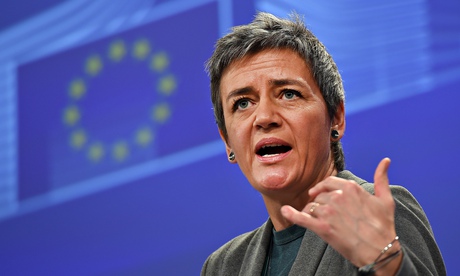







































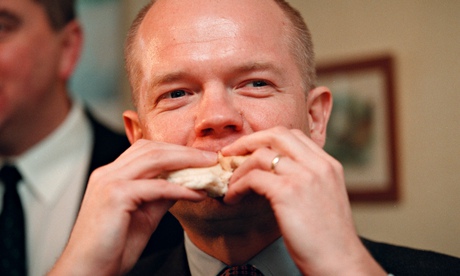















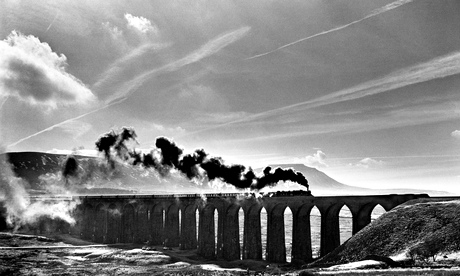 Ribblehead viaduct on the Settle and Carlisle line: worth an upgrade? Photograph: Denis Thorpe for the Guardian
Ribblehead viaduct on the Settle and Carlisle line: worth an upgrade? Photograph: Denis Thorpe for the Guardian 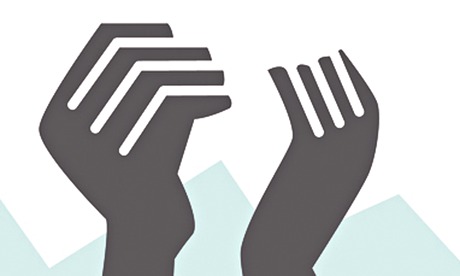











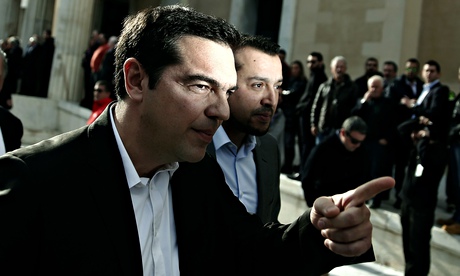

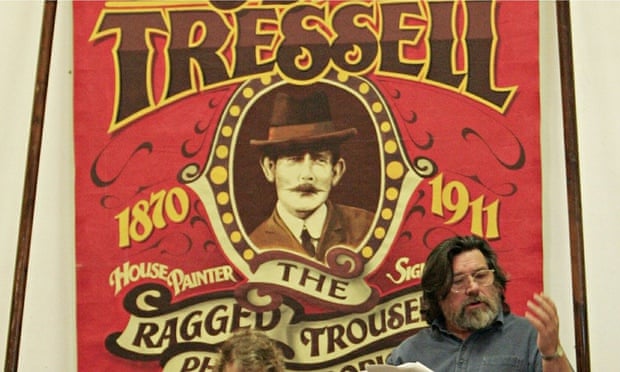
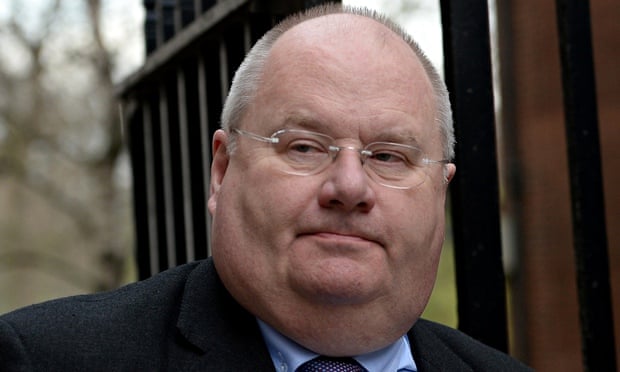
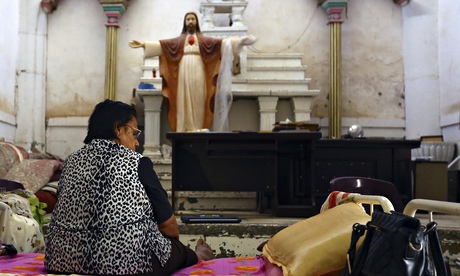
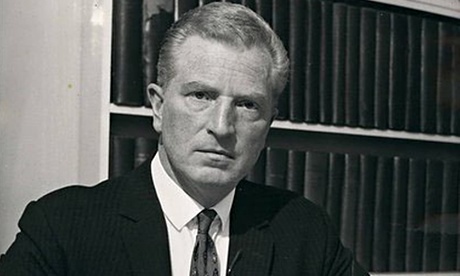



















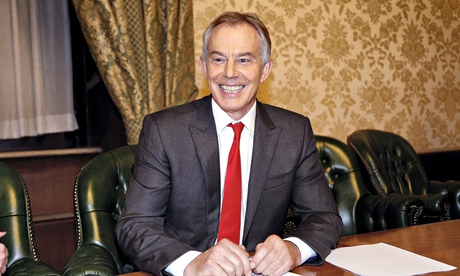



















 Christ Church, Spitalfields
Christ Church, Spitalfields









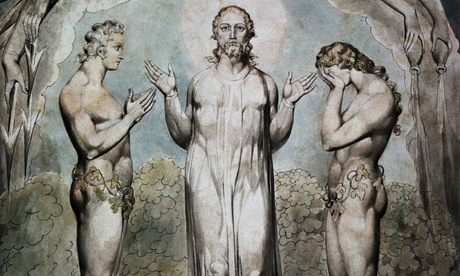

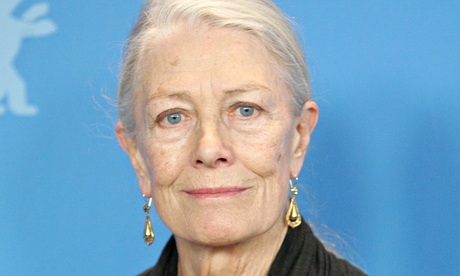
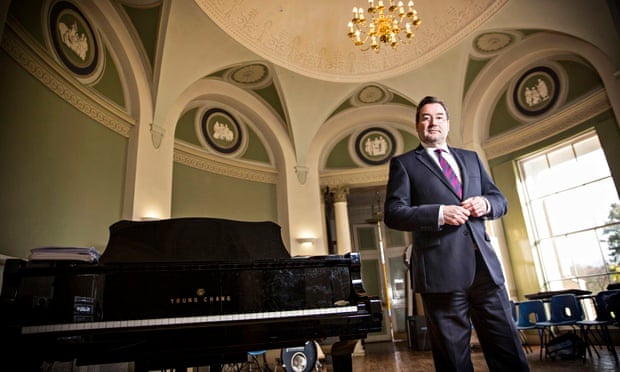


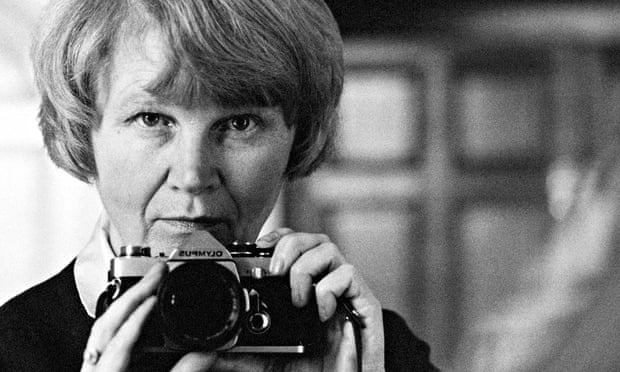



 Jack Harte and former poet laureate of the United States William Meredith
Jack Harte and former poet laureate of the United States William Meredith


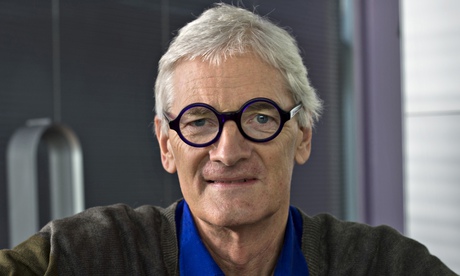
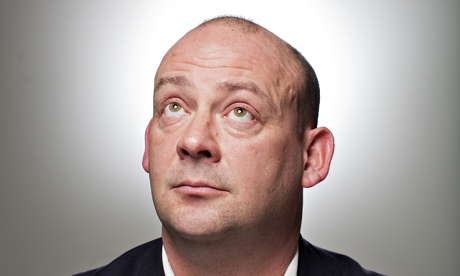 The Rev Giles Fraser, Guardian columnist and former nightclub dancer. Photograph: David Levene
The Rev Giles Fraser, Guardian columnist and former nightclub dancer. Photograph: David Levene 









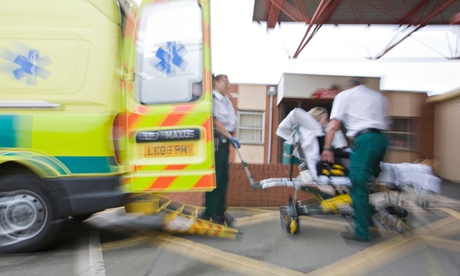

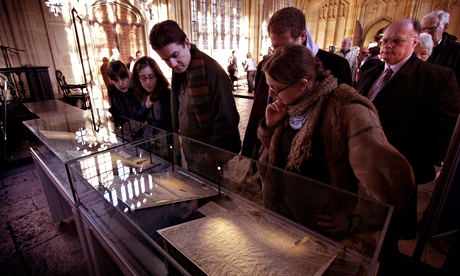




















 Olivia Colman and David Tennant star in Broadchurch Photo: ITV
Olivia Colman and David Tennant star in Broadchurch Photo: ITV






 Grave of French journalist Victor Noir (1848-1870) at Père Lachaise Cemetery in Paris. Photograph: Joel Saget/AFP/Getty Images
Grave of French journalist Victor Noir (1848-1870) at Père Lachaise Cemetery in Paris. Photograph: Joel Saget/AFP/Getty Images

